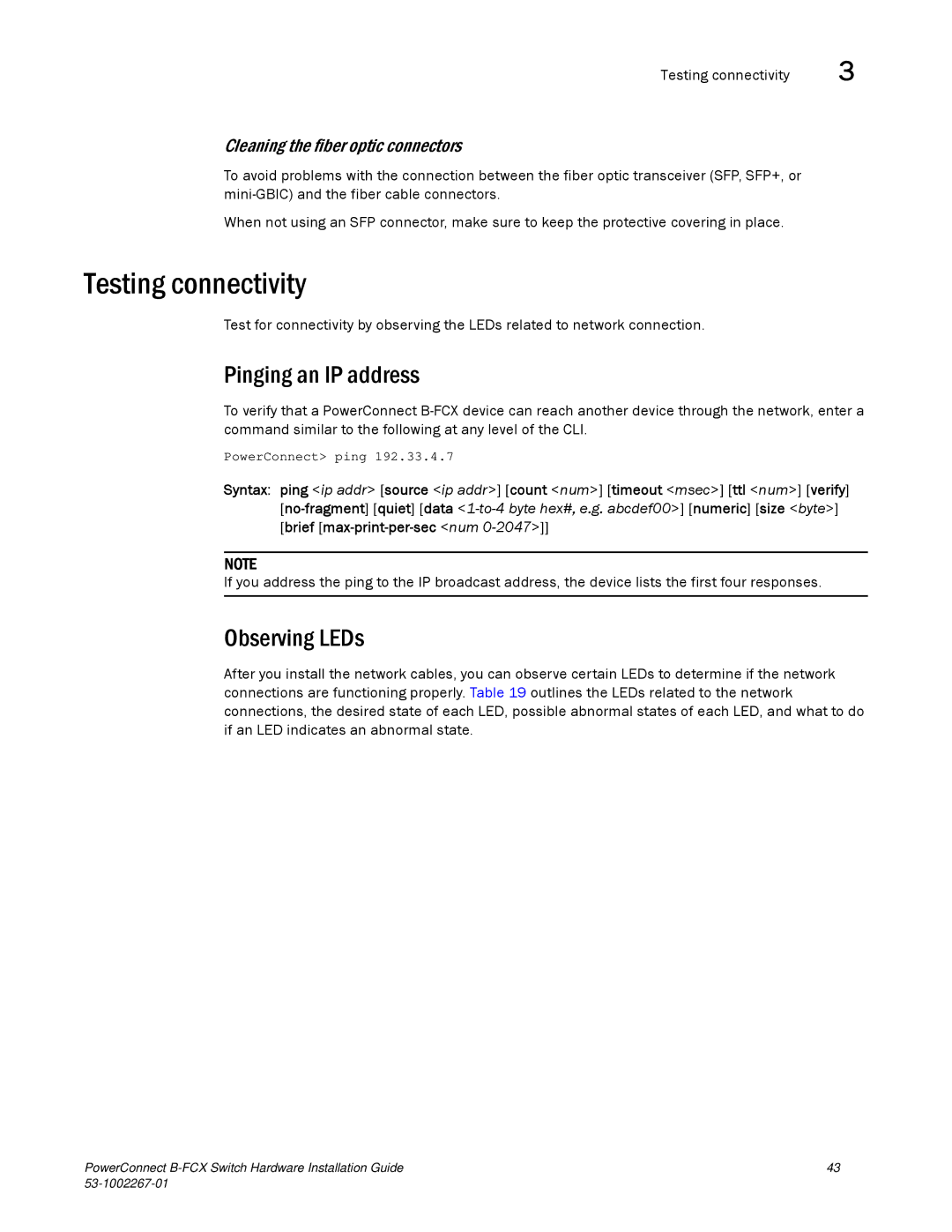Testing connectivity | 3 |
Cleaning the fiber optic connectors
To avoid problems with the connection between the fiber optic transceiver (SFP, SFP+, or
When not using an SFP connector, make sure to keep the protective covering in place.
Testing connectivity
Test for connectivity by observing the LEDs related to network connection.
Pinging an IP address
To verify that a PowerConnect
PowerConnect> ping 192.33.4.7
Syntax: ping <ip addr> [source <ip addr>] [count <num>] [timeout <msec>] [ttl <num>] [verify]
NOTE
If you address the ping to the IP broadcast address, the device lists the first four responses.
Observing LEDs
After you install the network cables, you can observe certain LEDs to determine if the network connections are functioning properly. Table 19 outlines the LEDs related to the network connections, the desired state of each LED, possible abnormal states of each LED, and what to do if an LED indicates an abnormal state.
PowerConnect | 43 |
|
